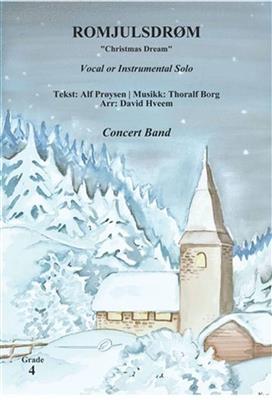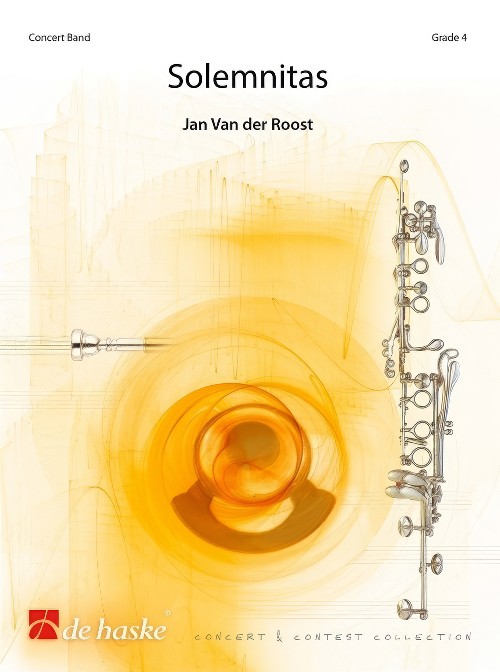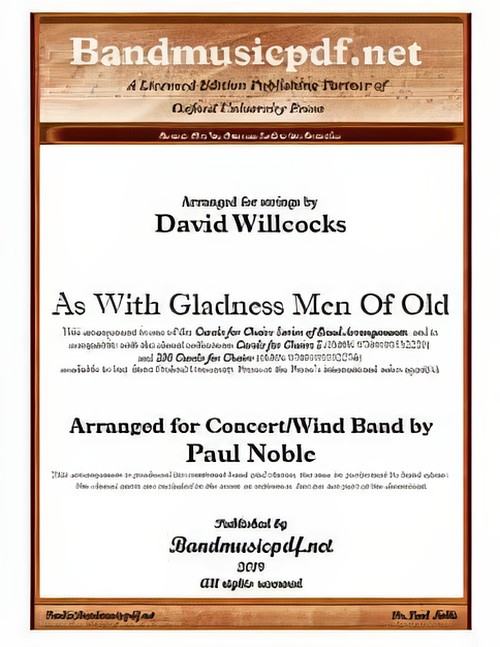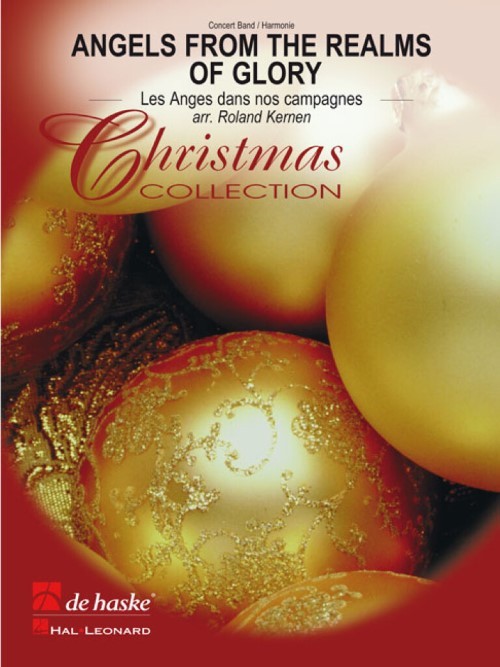Results
-
 £69.95
£69.95ZOO BALL (Value Set) - Strachan, Keith
Includes the score and 1 each of the 17 instrumental partsZoo Ball is score in five parts with various transpositions for each voice. Parts 1 & 2 are the Soprano parts. Part 1 should 'outweigh' part 2 in sound, if not in numbers, as it is often divided. Trumpets/Cornets and Clarinets should be divided accordingly between the parts. Part 3 is the Alto part. It is occasionally scored as an individual part but frequently doubles part 2 or 4. Part 4 is the Tenor part. Part 5 is the Bass part and frequently doubles part 4, either in unison or at an octave lower.The Zoo Ball is a suite of twelve light-hearted pieces for the young wind of brass band by Keith Strachan.It can be seen from the titles that the young player is introduced to a variety of dance rhythms that are both fun to play and enjoyable to listen to.It is scored in five parts (some of which divide in places) so can be played by ensembles of aroung ten players up to full band. When a fuller instrumentation is available, teachers and conductors are encouraged to vary the scoring as appropriate, particularly in repeated sections. This will allow players to rest occasionally and add changes of colour to the band sound by avoiding excessive doubling.Contents:Lion's PrideHippo's WaltzKangaroo HopEel CongaElephants' MarchSnake, Rattle and RollPanther TangoPenguin PolkaBuffalo BluesBlack Mamba SambaTiger RagMonkey Swing
Estimated dispatch 7-14 working days
-
 £115.60
£115.60Romjulsdrm - Thoralf Borg
The poem Romjulsdrm ("Christmas Dream") was first published in Arbeiderbladet on January 3rd 1959, and became known when Thoralf Borg set a melody to it in 1968. Up until this, Alf Prysen had used a melody quite similar to the song Lijan uti dalen, when he sang the song in the TV program Ei vise vil jeg synge in 1964. At the same time that Borg's melody was written, the last four lines of text were also added to the poem, and the song took on the form we know today.The form and structure of this arrangement originates from a version for big band and vocals commissioned by stre Toten Storband, written in 2018 for one of their traditional midnight concerts on the day before Christmas. In an attempt to give the arrangement a nice calm and the text a lot of room, as is often the case in songs like this, it ended up in a relatively narrative style where the variation in tempo and the shifts between swing and straight eighth notes are particularly central.The song is about family, friendship and the quiet days of the Christmas holidays, which hopefully is something most people can recognise. The arrangement for the aforementioned midnight concert was ordered because my sister was to be the soloist for the concert, and since my father also played lead trombone - as he has done in this big band for as long as I can remember - it was natural to add a small trombone solo as well. It's always special to write and arrange music for people I know and appreciate, but it's extra special when it's also for two of my great role models.- David Stre Hveem -
Estimated dispatch 7-14 working days
-
 £122.50
£122.50Festive Music
This work of festive atmosphere was written in 2000 for symphonic band, then the composer arranged it for symphony orchestra. In this piece, Lszl Dubrovay (*1943) parts with his special, hallmark concert band effects; rather, lively vibrations enriched with colliding seconds and distant overtones are brought to the foreground. The special sound is coloured by ornamental trills, appearing even in batches, and vibrating collisions in the high registers. The performance is rendered even more unique by the outer trumpets on both sides of the space. The trumpets and the flugelhorns can be divided into ten parts altogether, thus, the piece can be played by one ensemble or several bands together, as it is usual at the conclusion of large-scale festivals. This composition may be a great choice for festive concerts, since it is a solemn, innovative, and - by virtue of the free arrangement of the performing space - special work at the same time.
Estimated dispatch 7-14 working days
-
 £113.30
£113.30Via Della Terra - Marco Somadossi
Composing music also involves being able to imagine the sound of something that has no sound of its own. "Via della Terra" is a soundtrack without a film, a story without a narrator; "Via della Terra" is a street in a town, but not just any street, because if a street could tell its story, "Via della Terra" would not know where to start or where and indeed if it should finish. Like all "Vie della Terra", this street in this piece is full of sounds, none of which, however, have ever belonged to it for more than a fleeting moment, just long enough to be reflected here and there and then up and away from the earth, to be lost in the air. The steps of Mozart as a child as he whistled a piece of music, never again to be remembered or written; the philosophical thoughts, or mere everyday cares, uttered to a friend by Rosmini (whispered? or declaimed?); the excited or humorous comments of people who saw Depero's futuristic works for the first time; the voices of marketstall owners, rendered louder and more acute by the noisy crowd of women sorting through the stalls of rustling and colourful silk (so many desires; silent pauses between one item of gossip and the next); the absolute and devastating roar of cannons that violated every corner of the town, injuring bodies and mutilating the memories of its inhabitants... followed by a seeming eternity, as the citizens held their breath, waiting... "Via della Terra" is the old imperial road along which the town of Rovereto was built and has developed. "Via della Terra" is music for an imaginary, impossible and simultaneous representation of all its stories. The composer has always lived in this town, which he dearly loves, and on innumerable occasions he has imagined the voices, smells, people and the lives that have been such a part of it. With his composition, "Via della Terra", Marco Somadossi won second prize (no first prize was awarded) at the XXI Corciano International Competition for original band music in the grade 4 category.
Estimated dispatch 7-14 working days
-
 £144.99
£144.99Festa Paesana - Jacob de Haan
Lunteren, a village on the Veluwe (a wooded region in the Netherlands), sets the scene annually for a village festival dominated by folklore. Festa Paesana (Italian for village festival) is set to music by several folkloric sketches. The theme in Festa Paesana is partly based on a Dutch anthem (Wien Neerlands bloed); when other lyrics are used it is also known as the Lunteren anthem.The work begins with a festive introduction, completed by chimes and drums, in which pieces of the Lunteren anthem are heard. The music then transitions to represent a horse auction. We hear horses run their first rounds in the auction ring while being whipped. The following theme is partly basedon the anthem. The tension of the traditional auction is amplified by an ever-increasing cadence, reaching its climax when the word ?Sold!? is shouted. The night ends with a majestic variation on the Lunteren anthem.The next morning, when the tower clock hits seven times, the village is awaked by the reveille of the heralds. In a fugatic version of the anthem, we can hear the village slowly come to life. This evolves with the chiming of all towers in the village; the celebration can begin. Carriages drawn by horses rumble through the village and thus, it is easy to hear when a horse hesitates or runs amuck. A traditional folk dance group then dances a whirling waltz while the audience shares their pleasure. Musicians march along the scene and take over the waltz theme in their march. Until deep in the night, the musicians are still heard playing in the streets. Meanwhile, we hear the anthem theme being played in a choral variation (in minor). The first time it is played quietly, as a preparation for Sunday. Then it is played in a celebrating way, enabling the devout village residents to remember the past pleasant celebration with satisfaction.
Estimated dispatch 7-14 working days
-
 £154.99
£154.99The Power of the Megatsunami - Carl Wittrock
The word 'tsunami' is of Japanese origin. When you look it up in a dictionary, you will find that it means 'a great sea wave produced by submarine earth movement or volcanic eruption'. A megatsunami is the superlative of this awesome expression of power that nature can create, and has catastrophic consequences. When Carl Wittrock completed this composition not many such big earth movements had occurred, but since then we have become all too familiar with the disastrous consequences which a tsunami may have. On the 26th of December 2004 a heavy seaquake took place near the Indonesian island of Sumatra. Tidal waves 10 meters in height ravaged the coastal regions ofmany countries for miles around. The tsunami took the lives of thousands of people and destroyed many villages and towns. There are more areas which run the risk of being struck by a tsunami, such as the island of La Palma, one of the Canary Islands. This island is based on oceanic crust at a fracture zone and as such is one of nature's time bombs. The consequences of a natural calamity like a megatsunami are immense. In the case of La Palma, the tidal wave will move in the direction of South America, where it may reach 50 km inland, destroying everything on its way. In his composition Wittrock describes an ordinary day which will have an unexpected ending. Right from the beginning there seems to be something in the air, the music creating an oppressive atmosphere of impending disaster. Themes are interrupted, broken off suddenly, followed by silence, suggesting the calm before the storm. Suddenly a short climax (glissandi in the trombone part) indicates the seaquake, and the megatsunami is a fact. Hereafter follows a turbulent passage symbolising the huge rolling waves. After nature's force has spent itself, resignation sets in and the composition ends with a majestic ode to nature.
Estimated dispatch 7-14 working days
-
 £118.99
£118.99Elisabeth - Sylvester Levay
The world premiere of the musical Elisabeth took place in Vienna on September 3, 1992. From the great acclaim with which the musical was received, it became clear that the life of the Empress of Austria still appeals to the imagination. Although Elisabeth's life (1837-1898) as an Empress has a fairy-tale-like beginning, it takes a gloomy turn. In this production, Luigi Lucheni, the man who finally takes her life, tells her story. Death plays a major role throughout Elisabeth's life. In the musical, an equally mysterious and attractive man portrays the phenomenon of death, seducing her to the realm of death time after time. Elisabeth's life resembles a fairy tale when shemarries the Emperor Franz Joseph at the age of sixteen. Her mother-in-law, Archduchess Sophie, does not make it easy on Elisabeth. But it is life itself that puts the Empress to the test. First, her youngest daughter dies. Then, not long after her son Rudolf is born, her happiness is clouded when her mother-in-law decides she must take pity on him. After her husband's unfaithfulness and Sophie's death, Elisabeth is so disillusioned that she chooses a travelling existence without realizing her husband and her son, Rudolf, miss her. Rudolf's loneliness is one of the reasons he commits suicide. The accumulation of disappointments in Elisabeth's life almost drives her into the arms of Death. In the end, however, it is Lucheni who kills her.
Estimated dispatch 7-14 working days
-
 £104.99
£104.99Solemnitas (Concert Band - Score and Parts) - Van der Roost, Jan
This short but solemn overture was written on the occasion of the 110th jubilee of Harmonie Hautcharage, Luxembourg. It is an homage to Jean-Paul Frisch and his son Gerard (the present conductor), who each have been conducting the ensemble for many years. Under their leadership, the band has developed and improved remarkably. The very first musical theme, presented during the introduction of this little overture, is based on the letters hidden in the names Jean-Paul and Gerard Frisch (in which h is considered b - as it is in German), thus aiming the spotlight on both key figures in the history of Harmonie Hautcharage. After the rather stately intro, the allegro is more joyful and lighthearted, thus depicting the optimism of the many young players of the band. The end is exciting and energetic: it radiates positivity and belief in the future. Duration: 5.30
Estimated dispatch 7-14 working days
-
 £75.00
£75.00As With Gladness Men of Old (Concert Band with Optional Choir - Score and Parts) - Noble & Willcocks
As with Gladness Men of Old is an Epiphany hymn, written by William Chatterton Dix on 6 January 1859 (Epiphany) while he was ill in bed. Though considered by many as a Christmas carol, it is found in the Epiphany section of many hymnals and still used by many churches. The music was adapted by William Henry Monk in 1861 from a tune written by Conrad Kocher in 1838. The hymn is based on the visit of the Biblical magi in the Nativity of Jesus. The hymn used Matthew 2:1-12 as a theme to compare the journey of the Biblical magi to visit the baby Jesus to each Christian's personal pilgrimage and as a reminder that it is not the value of the gifts, it is the value of giving and adoration to Jesus that is what Christians should seek. It is the only well-known Epiphany hymn or carol about the Biblical magi that avoids referring to them as either magi or kings and does not state how many there were. This arrangement represents one in the Series of Band Arrangements compatible with David Willcocks' Carols for Choirs.
Estimated dispatch 7-14 working days
-
 £94.99
£94.99Angels from the Realms of Glory (Concert Band - Score and Parts) - Kernen, Roland
The title of this clever arrangement reveals the Christmas song it is based on. The melody can be traced back to a French folksong from the 18th century which is now known around the world. In France it is called Les anges dans nos campagnes, in Germany it is most widely known as Engel auf den Feldern singen and in England it was originally called Angels From the Realms of Glory but it often known as Angels We Have Heard on High. Everyone will rejoice upon hearing the 'Gloria in excelsis Deo' refrain!Duration: 5:45
Estimated dispatch 7-14 working days
